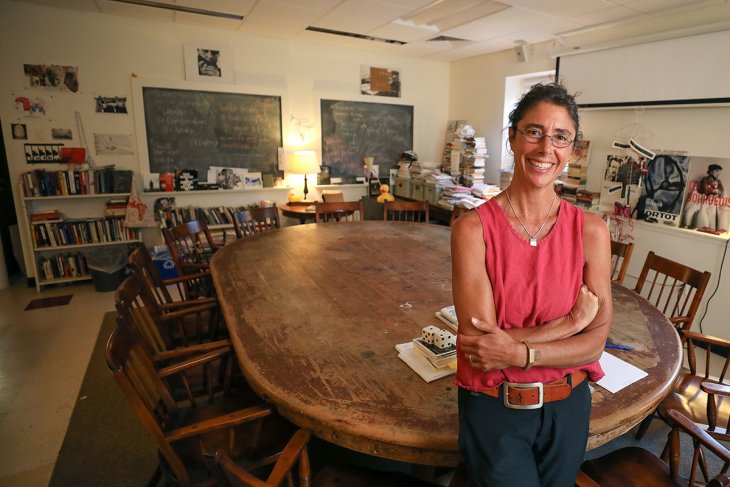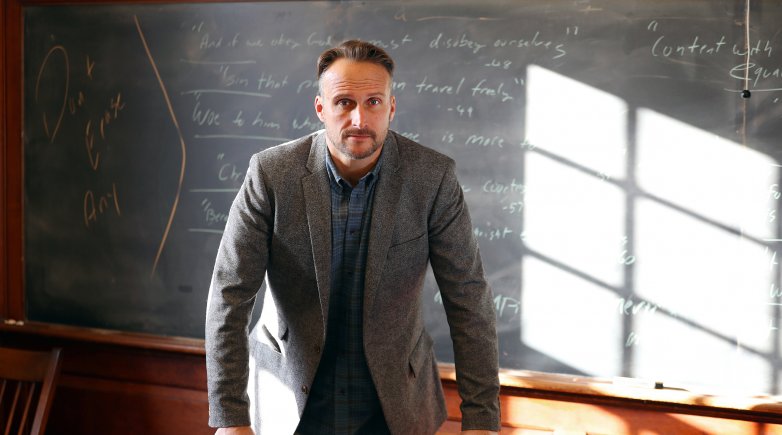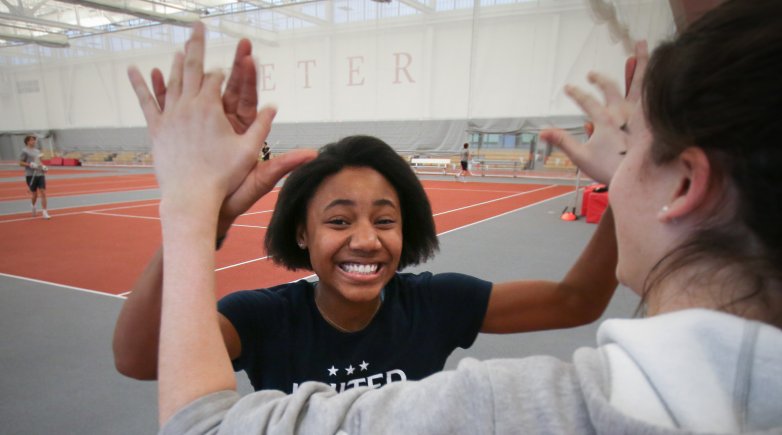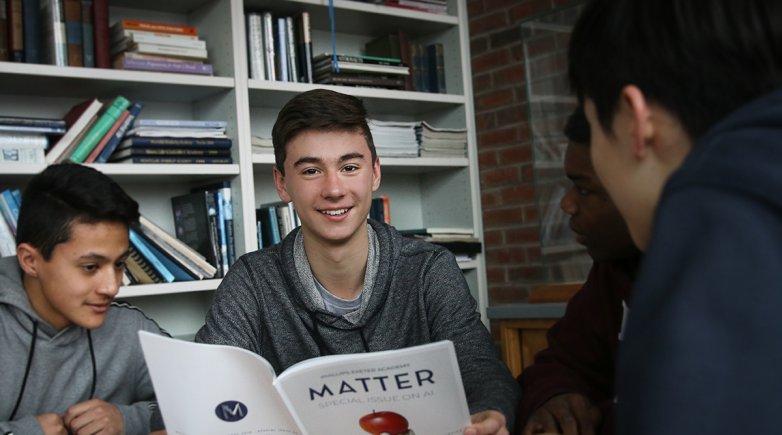Mercy Carbonell

"The idea of objects as carrying stories and meaning and intimacy and proximity has always mattered."
Tucked at the far end of the basement level of Phillips Hall, English Instructor Mercy Carbonell’s classroom is a visual invitation. There are books to look at for sure, stacks of them along every wall, but also vintage multilingual posters, framed team photos, ink drawings, a Native American dream catcher, even a half-bust mannequin sporting a scarf. All are items that Carbonell has accumulated during her 22-year career teaching and coaching at the Academy.
"I love my room and sometimes I wish I could find ways to arrange all the clutter," she says. "Sometimes I wish I was not quite a hoarder of stories and art and student lives, but it might be best to let go and just be who I am."
She is a collector of stories, carefully preserved in the keepsakes that fill her room. "The idea of objects as carrying stories and meaning and intimacy and proximity has always mattered," she says. "I hold on to things so somehow I won’t forget the thing itself. ... I’m terrified of losing my memory." We visited Room 013 to learn more about a few of the pieces that can’t help but catch the eye.
— Wes LaFountain ’69



